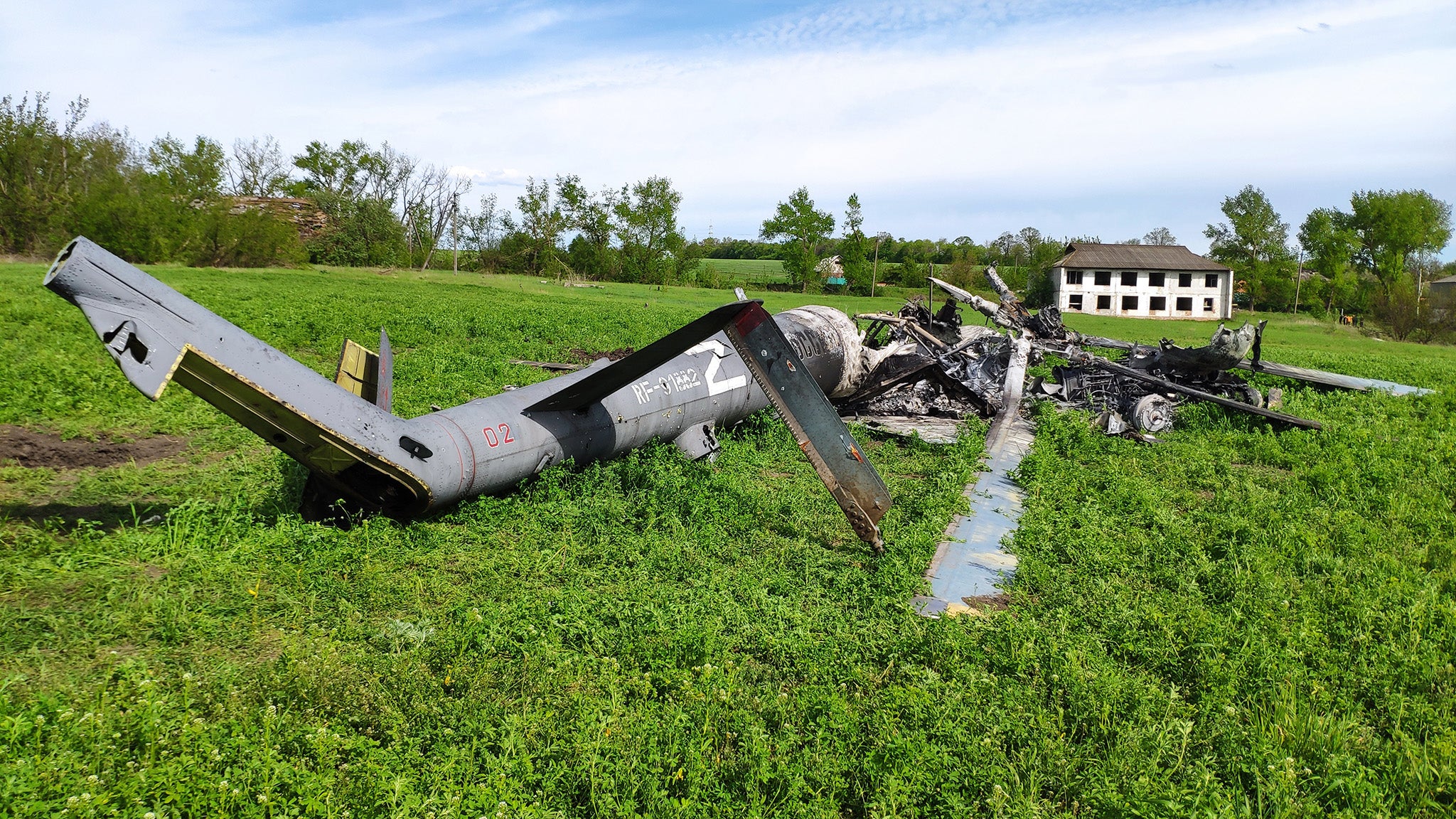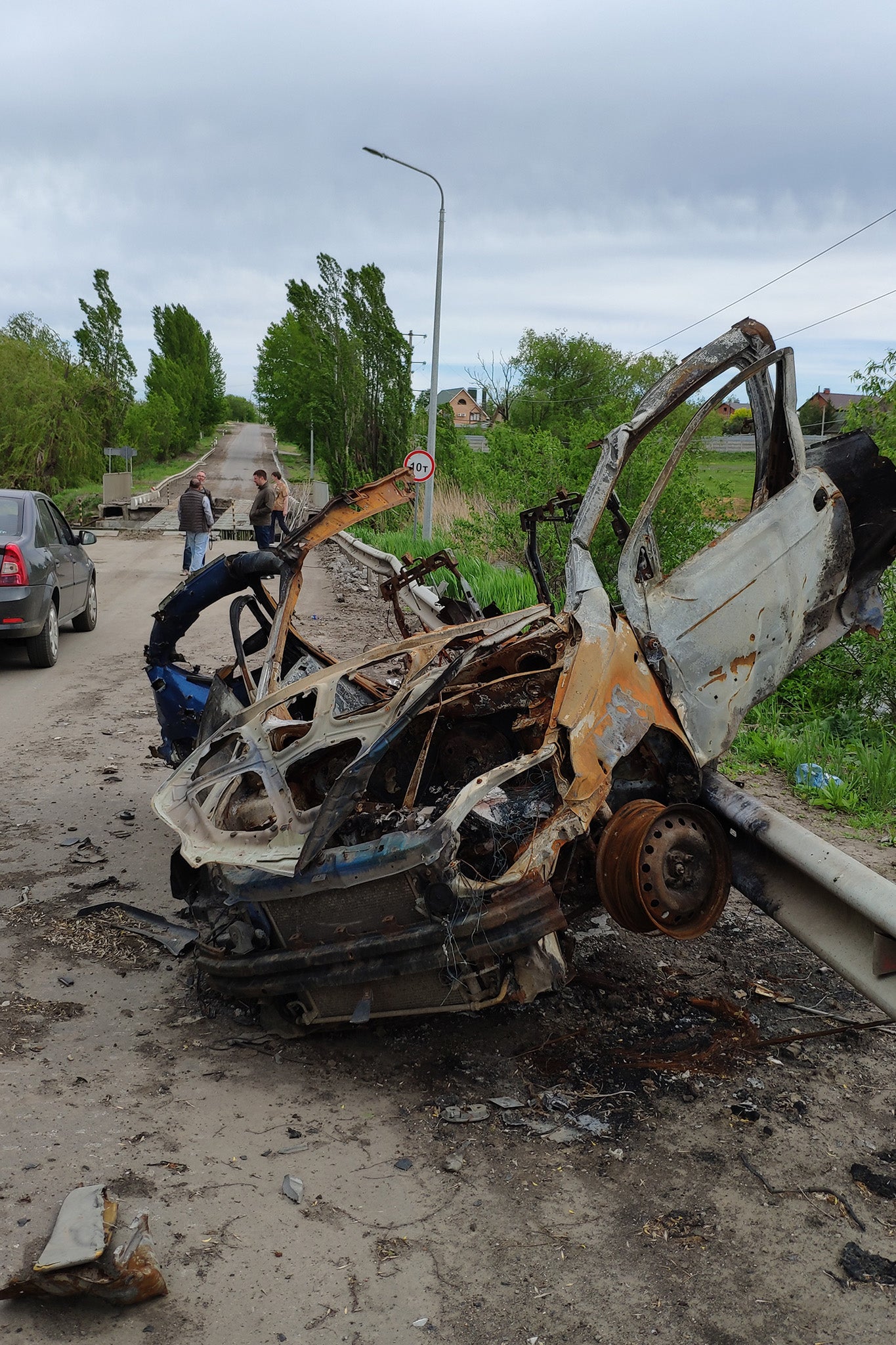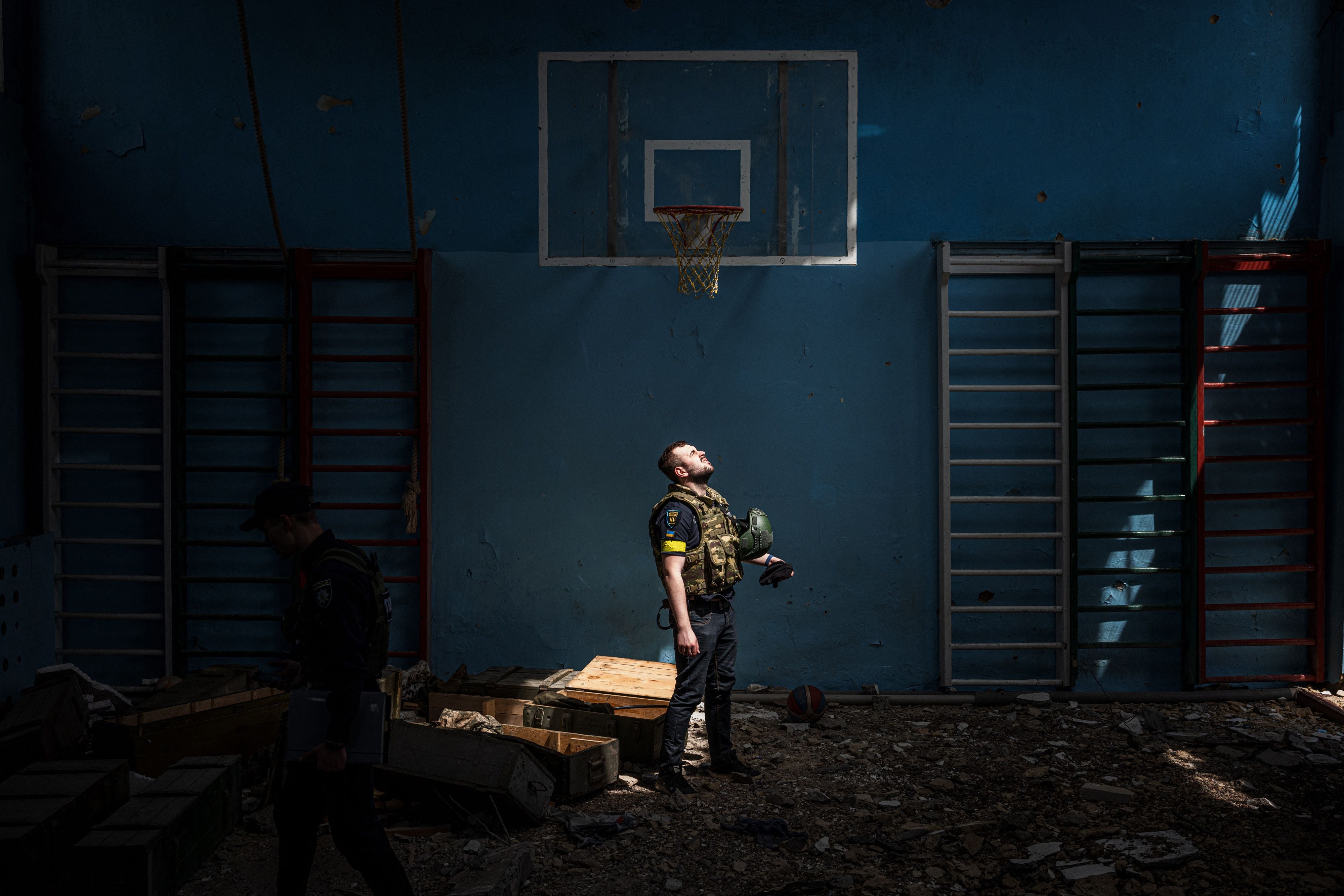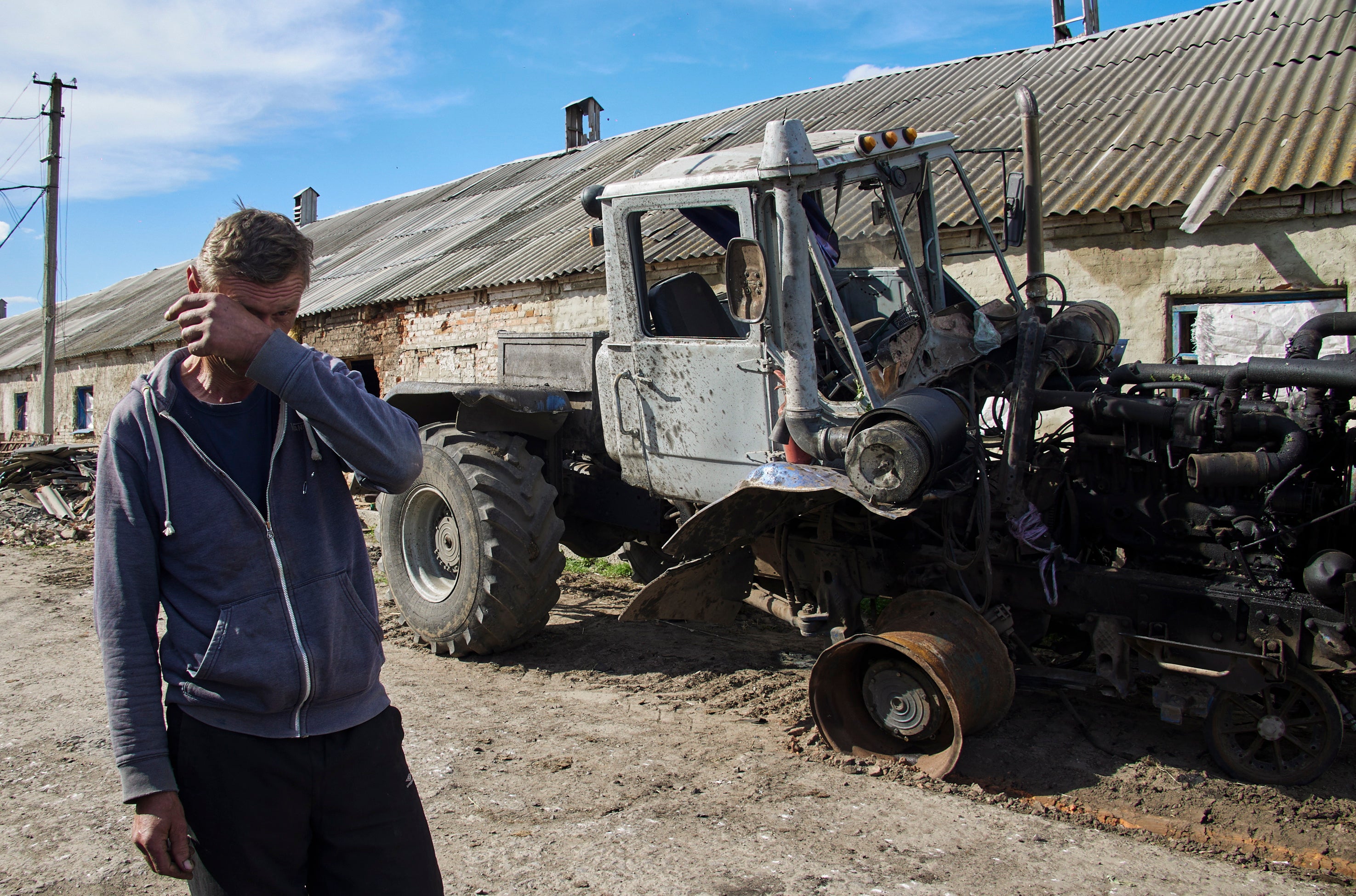‘Things are still not safe’: Locals fear returning to scarred villages of Kharkiv despite Russian retreat
Though Russian forces have been pushed back from Kharkiv, families who fled their villages under threat of rape and death are yet to return, finds Kim Sengupta


Your support helps us to tell the story
From reproductive rights to climate change to Big Tech, The Independent is on the ground when the story is developing. Whether it's investigating the financials of Elon Musk's pro-Trump PAC or producing our latest documentary, 'The A Word', which shines a light on the American women fighting for reproductive rights, we know how important it is to parse out the facts from the messaging.
At such a critical moment in US history, we need reporters on the ground. Your donation allows us to keep sending journalists to speak to both sides of the story.
The Independent is trusted by Americans across the entire political spectrum. And unlike many other quality news outlets, we choose not to lock Americans out of our reporting and analysis with paywalls. We believe quality journalism should be available to everyone, paid for by those who can afford it.
Your support makes all the difference.Denis Kozmenko decided to flee his home with his young family after he saw a young mother, who had taken shelter in a school during airstrikes, being dragged off to be raped by a Russian soldier.
He was among the many Ukrainian men who decided to move their wives and daughters out of the village of Mala Rohan, which was under Russian occupation, after the horrific sexual assault on the 27-year-old woman.
“I saw what happened that night. This poor woman was taken away in front of her family, dozens of people, by this soldier. I realised then that there was no safety, no safety at all,” says Mr Kozmenko, who has returned to the village after it was recaptured by Ukrainian forces.
“We have a 14-year-old daughter, and of course I was worried. We left our homes the next day, and my family has not come [back] since. I am not going to bring them back for the time being. Things are still not safe here, for all kinds of reasons.”
The Independent reported the rape at Mala Rohan, near Kharkiv in northeastern Ukraine, at the end of March, as accounts began to emerge of wide-scale sexual violence following the Russian invasion. The first trial for a rape that took place during the conflict is due to start in Kyiv in the coming days. A Russian soldier, named as Mikhail Romanov, will be charged in his absence with assaulting a woman after shooting her husband dead.
The victim of the assault in Mala Rohan, who has a five-year-old daughter, suffered knife wounds during the attack, which began after a drunken Russian soldier burst into a village school where residents had taken refuge during fierce fighting.
The rapist, a 19-year-old trooper called Vladimir, was arrested and taken away by Russian forces after being identified by local people. Russian officers subsequently claimed that the attacker had been summarily executed.

The victim’s family left the village after the assault, and do not intend to return. Their next-door neighbour says: “We don’t blame them at all. Why would you want to come back to a place with such memories? The decision to move young women afterwards was right; ten [families] left from just this road. We have heard tales of what has happened to women at other places as well.”
She continues: “A lot of families are not coming back at the moment. They are worried about a lot of things; people don’t want to make the wrong choice and regret it, despite the Russians going.”
The failure to take Kharkiv, just 25 miles from the Russian border, was a huge blow to Vladimir Putin’s attempts to dismember Ukraine.
The country’s second city, 74 per cent of whose population is Russian-speaking, fought back against repeated attempts by Russian forces to storm it, and then resisted a prolonged siege and relentless missile and artillery strikes.

What is taking place now is being seen as a key turning point in the course of the war. Ukrainian forces have driven back the Russians, retaking Mala Rohan and adjoining areas.
But people who fled these communities during the fighting are hesitant about moving back. They are afraid that the Russians may try to take their towns and villages again, and they are also concerned about unexploded ordnance, mines, a lack of power and water, and disease.
Russian corpses are still being found, in fields and in abandoned houses. Some that were buried in shallow graves by local people, after the authorities failed to take them away, have been dug up by packs of dogs. The warm spring weather, with temperatures in the low twenties, has led to worries about the public health implications of the unburied remains.
The Russian occupation and the Ukrainian counter-attacks took a lethal toll on the village. Many residents who died were buried in the gardens of their homes, with the cemetery too dangerous to attempt to reach because of the fighting.
On our last visit, dead bodies of Russian soldiers could be seen strewn in the alleyways of the village, and in the fields beyond, and they are still being found. One – an officer, judging from the chevrons on his combat jacket – lies in the basement of a house, with a wound to his head and a Grach pistol in his hand.
“He was surrounded; he may have taken his own life – that could have been it,” says a Ukrainian soldier. He does not want to search the body, wary that the dead man’s comrades may have booby-trapped it.
A Russian corpse has lain outside the home of 87-year-old Vasilyi Gregorovich for days. “The first live Russian I saw was when I was looking out of the window. He tried to shoot me; luckily he missed,” recalls Mr Gregorovich. “As they were withdrawing from here at the end, three more came and hid in my house. I went out and told the [Ukrainian] soldiers and they were arrested. They didn’t fight, they were taken away. I don’t know if they were responsible for any crimes, like what happened to that young woman.”

A little distance away, Yuri Sorokotigyan is planting his kitchen garden with garlic, onions and potatoes. One patch, a mound, is marked by four metal rods. “Russian dead, maybe about half-dozen, they are all in there,” he explains. “I saw hands, faces, badly burned. They were lying around in the field... dogs started eating them. They still come sniffing around, look! The officials say these bodies will be exhumed, but they don’t say when.”
There are plenty of signs of Russian material losses. Within a 500-metre radius lie a BTR-80 armoured personnel carrier sheared in half, a T-72 tank that appears to have taken a direct hit from a drone, and a Mi-17 helicopter which, according to locals, was downed by Russian “friendly fire”.
In the cockpit of what was once the helicopter lies a “12 Bar Value Pack” of KIND nuts & seasalt chocolates, with a message on the packet from its American manufacturers: “Our goal is to make KIND not just a brand but also a state of mind and community to make the world a little kinder.”
“The chocolate was probably stolen from a Ukrainian home,” says Mr Sorokotigyan. “There hasn’t been much kindness in this war. So many deaths, homes destroyed, for what? We have friends, families, in Russia. People used to cross the border to meet each other all the time, and now they are killing each other.”
Mr Sorokotigyan served in Afghanistan and Germany as a soldier in the Soviet army. “There were Ukrainians, Russians, Uzbeks, Georgians, all part of the same military. We knew who was on which side. Now we are invaded, and we have people from all these countries fighting in Ukraine. There will be a lot of anger even when this war is over,” he predicts.
Not all the anger is directed at the Russians. Standing in front of his house, which has been shattered by a missile strike, 46-year-old Pavlo Chiuko complains: “I am not bringing my family back. There are mines and bombs which have not been cleared. We are also worried about illness affecting our children... how can one leave dead bodies around without diseases breaking out?
“I’ll have to rebuild my house by myself. There is no help from officials. We blame the local government for this; all of them disappeared when the Russians came. We were left to look after ourselves.”
Not all officials, however, have gone. Valeryi, a judge, sent his family out of Ukraine to Germany, but stayed on in the village of Vilkhivka.

“We didn’t know what to expect at first. The tanks came up to the road in front, and some soldiers came to talk to us. They seemed quite civil at first. A lot of them were from the DNR [the separatist Donetsk People’s Republic] and looked very young.
“Then there was a lot of fighting up the road, and the Russians took heavy losses. They showed another side to them when they retreated – they just opened fire as they came past these houses. It was just revenge,” he says, pointing to the walls of his own home, which are pockmarked with holes.
A car belonging to a family who were trying to escape was attacked, killing three women and two children. The bodies were left for days before being removed, and a pet dog, which would not let emergency workers get close to the remains, had to be shot.
The main school at Vilkhivka has been left a charred shell by the fighting. Olena Mikholaiva’s home across the road was destroyed; she now stays in an abandoned house nearby.
“I am lucky, I was in a shelter when the house got hit,” she says. “I don’t know where I’ll end up staying. We are getting food from the aid people so I am not going hungry.”
Ms Mikholaiva’s two children live away from the village; her daughter is abroad. She is emphatic that people should not lose their connection with their homeland: “I hope they come back here one day,” she says. “Our family have been living in this area for over 300 years. It’s important for people to keep their roots, even in times of trouble.”
Join our commenting forum
Join thought-provoking conversations, follow other Independent readers and see their replies
Comments